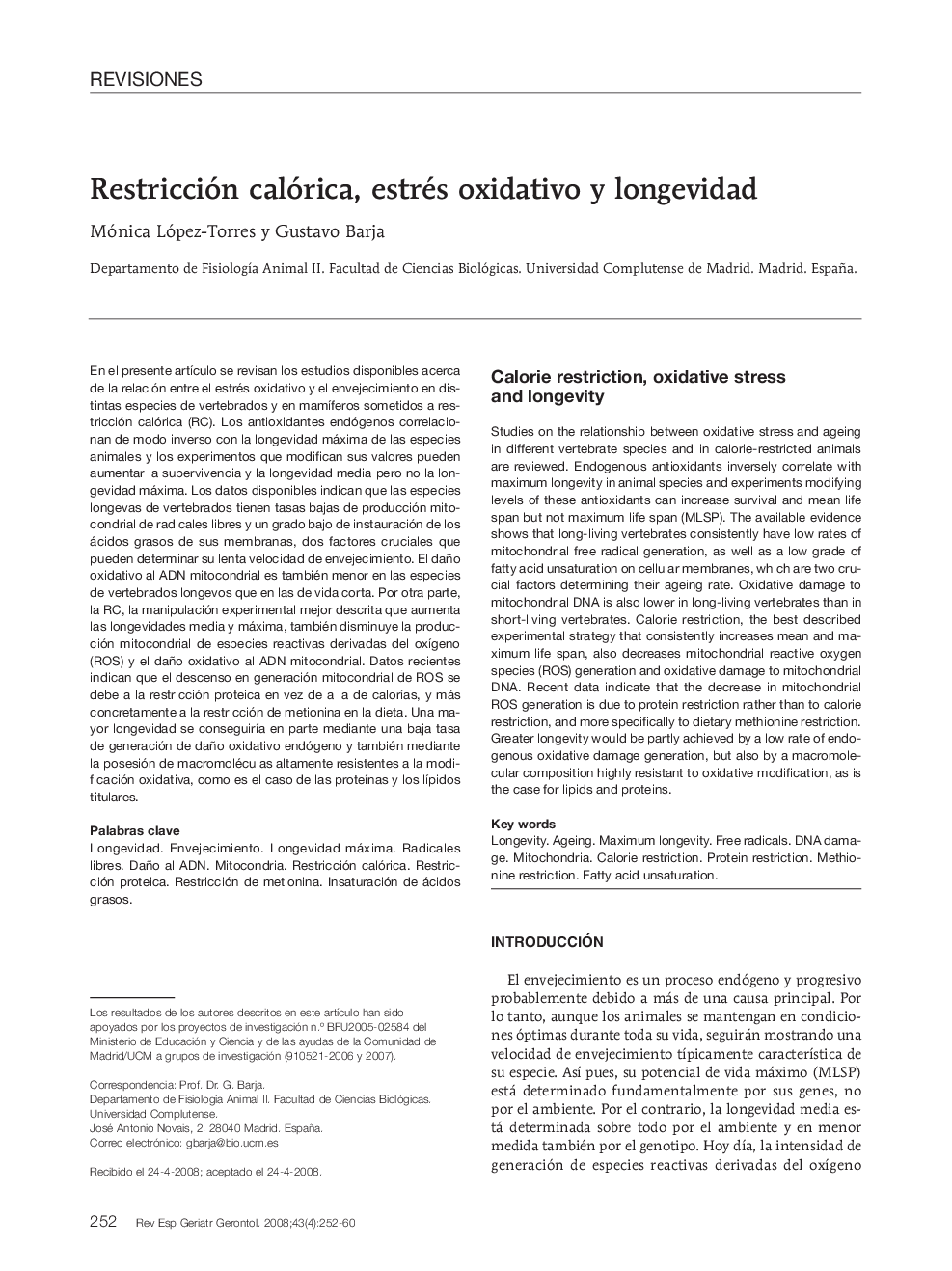| کد مقاله | کد نشریه | سال انتشار | مقاله انگلیسی | نسخه تمام متن |
|---|---|---|---|---|
| 939239 | 924813 | 2008 | 9 صفحه PDF | دانلود رایگان |
عنوان انگلیسی مقاله ISI
Restricción calórica, estrés oxidativo y longevidad
دانلود مقاله + سفارش ترجمه
دانلود مقاله ISI انگلیسی
رایگان برای ایرانیان
کلمات کلیدی
Longevity - دیرزیستی یا طول عمرDNA damage - آسیبDNAFree radicals - رادیکال آزادRadicales libres - رادیکال های آزادAgeing - سالخوردهlongevidad - طول عمرMethionine restriction - محدودیت متیونینProtein restriction - محدودیت پروتئینcalorie restriction - محدودیت کالریMitochondria - میتوکندریاMitocondria - میتوکندریاEnvejecimiento - پیری
موضوعات مرتبط
علوم زیستی و بیوفناوری
بیوشیمی، ژنتیک و زیست شناسی مولکولی
سالمندی
پیش نمایش صفحه اول مقاله

چکیده انگلیسی
Studies on the relationship between oxidative stress and ageing in different vertebrate species and in calorie-restricted animals are reviewed. Endogenous antioxidants inversely correlate with maximum longevity in animal species and experiments modifying levels of these antioxidants can increase survival and mean life span but not maximum life span (MLSP). The available evidence shows that long-living vertebrates consistently have low rates of mitochondrial free radical generation, as well as a low grade of fatty acid unsaturation on cellular membranes, which are two crucial factors determining their ageing rate. Oxidative damage to mitochondrial DNA is also lower in long-living vertebrates than in short-living vertebrates. Calorie restriction, the best described experimental strategy that consistently increases mean and maximum life span, also decreases mitochondrial reactive oxygen species (ROS) generation and oxidative damage to mitochondrial DNA. Recent data indicate that the decrease in mitochondrial ROS generation is due to protein restriction rather than to calorie restriction, and more specifically to dietary methionine restriction. Greater longevity would be partly achieved by a low rate of endogenous oxidative damage generation, but also by a macromolecular composition highly resistant to oxidative modification, as is the case for lipids and proteins.
ناشر
Database: Elsevier - ScienceDirect (ساینس دایرکت)
Journal: Revista Española de GeriatrÃa y GerontologÃa - Volume 43, Issue 4, July 2008, Pages 252-260
Journal: Revista Española de GeriatrÃa y GerontologÃa - Volume 43, Issue 4, July 2008, Pages 252-260
نویسندگان
Mónica López-Torres, Gustavo Barja,